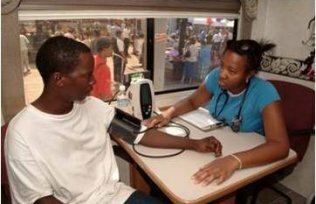copyright (c) 2011 NICHE
Site by websculptures
Sitemap
Provider payment reforms in Ghana’s National Health Insurance Scheme
Provider payment reforms in Ghana’s National Health Insurance Scheme: monitoring and evaluation of capitation as a provider payment mechanism for primary out-patient services
Ghana introduced a National Health Insurance Scheme in 2003 to provide financial access to health care service and has since achieved 35% population coverage. The Scheme is faced with challenges, notably, cost escalation partly due to both demand-side and supply-side moral hazards. Committed to address these challenges, the National Health Insurance Authority (NHIA) is implementing measures, including provider payment reforms with the introduction of capitation as payment mechanism for primary out-patient services. Following this decision, concerns have been raised about the possibility of providers reducing the quantity and quality of services they provide to the insured. The NHIA is convinced that notwithstanding the weaknesses of capitation payment system, applying it to primary out-patient care will help minimize the cost escalation emanating from primary out-patients care. The NHIA, however, acknowledges the need for a robust monitoring and evaluation system to track the implementation process in order to identify and address any un-intended effects that may arise thereof.
This study is, therefore, being undertaken as part of the monitoring and evaluation system and is intended to produce evidence to inform policy direction with regard to the capitation implementation. In particular, the study aims to shed more light on whether the capitation payment mechanism contributes to reduction in primary out-patient utilization and related cost to the NHIS; whether capitation influences provider behavior in the delivery of primary out-patient service delivery and how it affects the perception of NHIS subscribers and their uptake of, and or retention, in health insurance in Ghana?
Related publications:
- Does capitation payment under national health insurance affect subscribers’ trust in their primary care provider? a crosssectional survey of insurance subscribers in Ghana
- Can health insurance protect against out-of-pocket and catastrophic expenditures and also support poverty reduction? Evidence from Ghana's National Health Insurance Scheme
